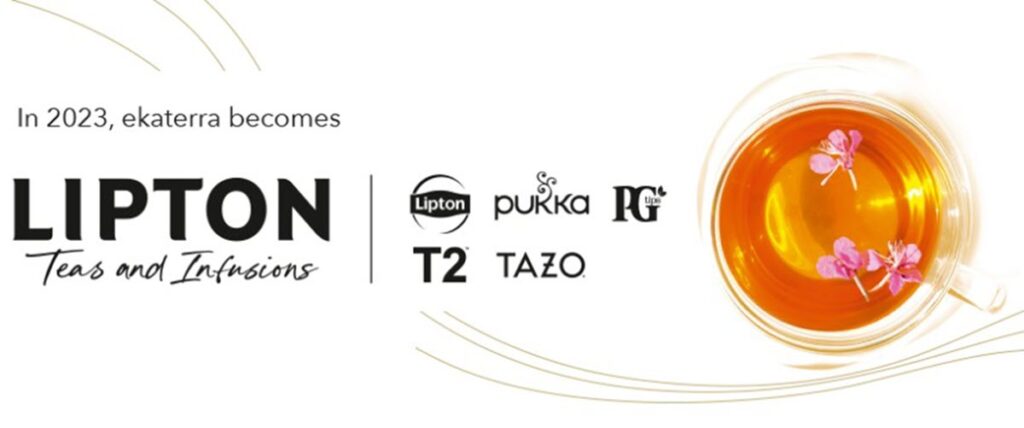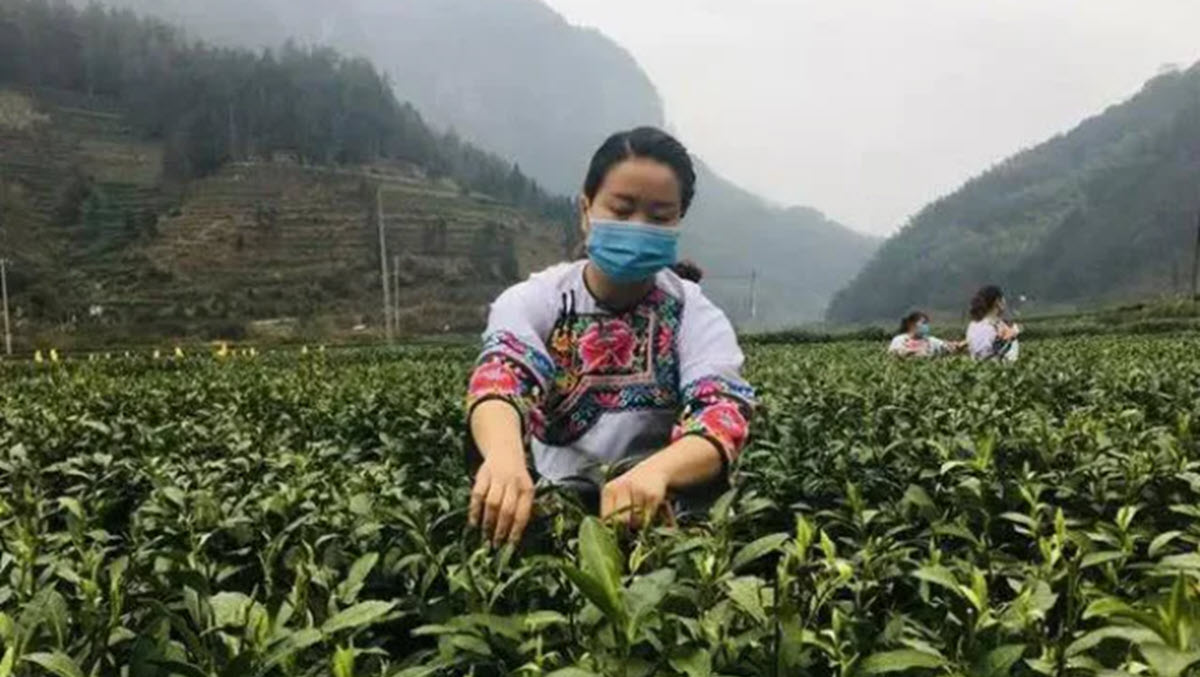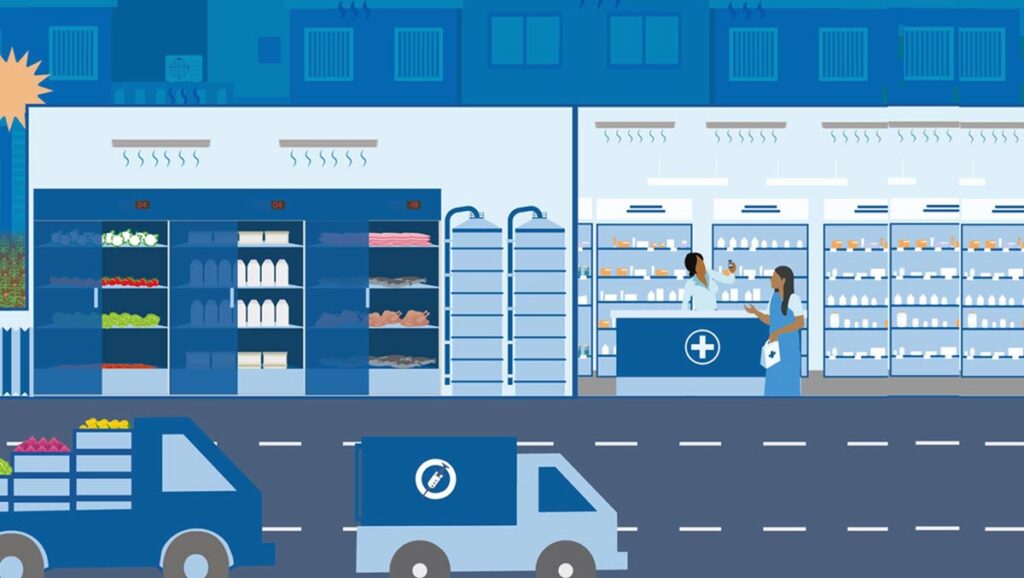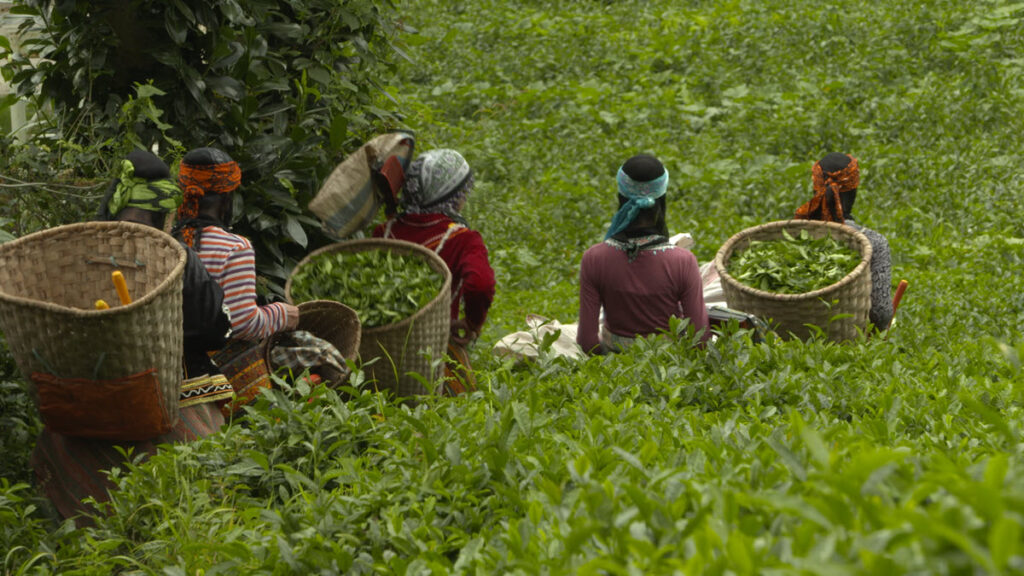“I’ve seen some very good plantations in my travels, in India, in Tanzania, in Kenya, and I’m sure there are others in many other countries as well. But at the end of the day, a plantation is still a plantation, and the workers are still in that large entity,” says THIRST Founder/CEO Sabita Banerji.
“I think an alternative model of smallholder farmers aggregating is starting to emerge. Just comparing the two, the difference between how a tea plantation worker lives and how a smallholder farmer lives is really quite significant,” she says
Control distributed amongst its elements makes for a much more powerful, stronger, sustainable, and more efficient entity, explains Banerji
“I think this model will gradually replace plantations in the long run,” she said.
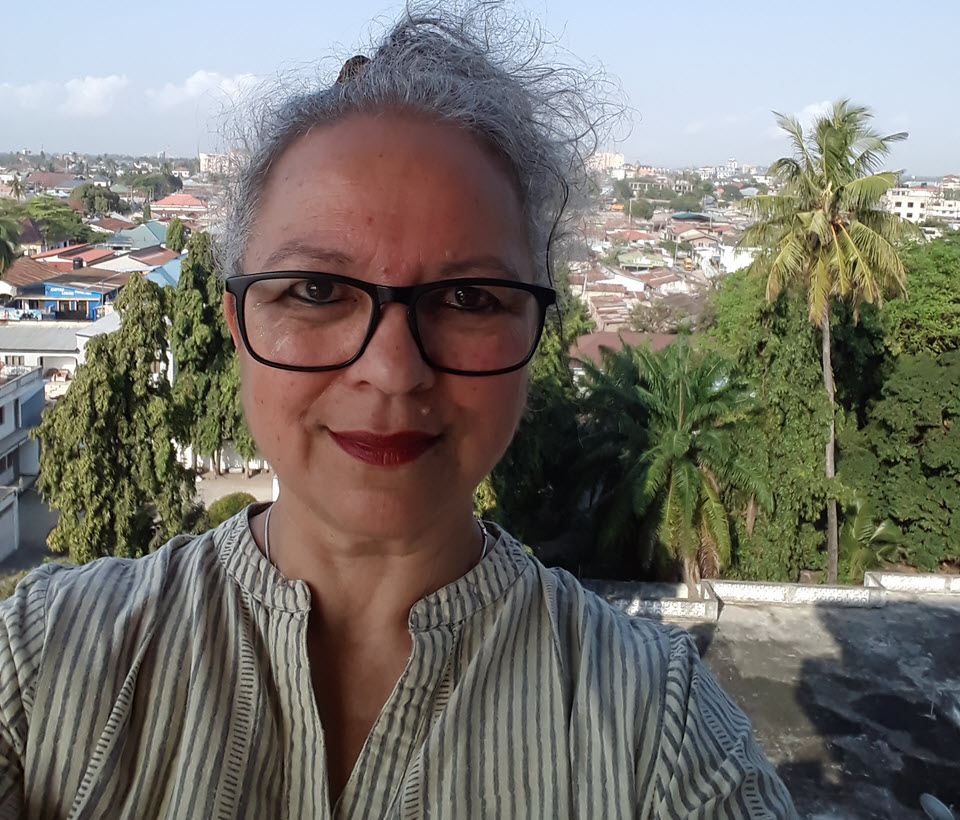
Tea Smallholders in Tanzania and Kenya are Banding Together to Make Better Tea
By Dan Bolton
Sabita Banerji founded THIRST in 2018.
The non-profit platform she heads is working towards a stronger, fairer, more resilient tea industry in both tea-producing and tea-consuming countries. Sabita was born and raised on tea plantations in Kerala and Assam. She has nearly 20 years of experience in ethical trade and international development, having held strategic posts at Oxfam and the Ethical Trading Initiative, and has been a human rights consultant to a wide range of companies and non-profits. She was previously a member of the Board of Directors of Just Change, UK – a voluntary community tea trading initiative. Sabita graduated from the University of Bristol, studying philosophy and English.
Dan Bolton: Tea smallholders now produce most of the world’s tea by volume yet retain only a small fraction of its value. To prosper, small and medium enterprises must add value at origin. The first step is learning to produce consistent, high-quality tea at scale.
Sabita Banerji: I’m completely on the same page as you. And I think, like you, that this model of smallholder farmers sort of aggregating is gradually going to replace plantations in the long run.
What interests me about that model links back to something I read years ago in a book by Kevin Kelly, editor of WIRED Magazine. The book “Out of Control: The New Biology of Machines, Social Systems, and the Economic World” (1992) described this idea that when the control of something is distributed amongst its elements, it makes for a much more powerful, stronger, sustainable, and more efficient entity.
It seems to me that that’s what’s naturally starting to happen in the tea sector, that the plantations worked in an economic sense, and I suppose partially, some would say, in a social sense, for nearly 200 years. Now, that model is struggling to be economically viable.
And it’s struggling to be sort of socially and morally viable with the increasing kind of pressures on companies to ensure that workers have their own autonomy, that they’re living decent lives, and that they have sufficient income.
I’ve seen some very good plantations in my travels, in India, in Tanzania, in Kenya. I’m sure there are others in many other countries as well. But at the end of the day, a plantation is still a plantation, and the workers are still workers in that large entity.
There is an alternative model that’s starting to emerge in Tanzania and Kenya, where I’ve visited many different smallholder farms and a few plantations. Just comparing the two, the difference between how a tea plantation worker lives and how a smallholder farmer lives is really quite significant.
I’m not saying that a smallholder farmer’s life is easy; it’s far from it. It’s hugely hard work. In some senses, the typical day of a smallholder farmer, particularly the woman, is, in some ways, no easier than that of a tea plantation worker. She must get up at four in the morning, fetch water, get the kids ready for school, make food, then go out to the fields and work.
I spoke to one woman who said that the tea collection centers were between one and four kilometers away. There were various centers she could go to, and she could carry 30 kilograms at a time on her head. But if she’s produced 150 kilograms, she must make that journey five times.
So, it’s a hard, hard life, but she has her own house, she has her own land, can diversify, and can plant other crops. She can build onto her house if she wants. That model has a certain dignity and self-respect and a certain sort of agility built into it.
A central factory will have collection centers around its immediate area. And then individual farmers will bring their leaf to that collection center, so they are both part of a bigger whole, the whole entity of that region. But they’re also autonomous. And I think that combination is really, really promising.
Dan: You described a typical bought leaf factory supplied by independent smallholders. What other models are working?
Sabita: I saw three versions of that smallholder aggregated model, which I found very interesting.
Before I go into them, let me explain why we made this trip and why Narendranath Dharmaraj is going to Sri Lanka to do the same.
We plan to document as many of these alternative approaches as possible. Because I think alternatives are now needed. The tea industry is, you know, really up against it.
The different models I saw in Tanzania are block farming and the Kazi Yetu model you mentioned, which is a social enterprise working on a much smaller scale but focusing on specialty tea. And finally, the Kenya Tea Development Agency, which is, you know, well established. It’s not new, but it works.
Block Farming in Tanzania
Dan: Will you share some brief observations about each? Let’s start with the block farming model, which is new to me. Please describe how that works.
Sabita: Block farming is a model I came across in southern Tanzania. This was a project supported by The Wood Foundation.* In Tanzania, they helped to set up a company called the Njombe Outgrower Service Company (NOSC), which exists to help smallholder farmers set up unity production in this block farming model.
In Tanzania, there’s a lot of unused land. And in a village, you might have a wide tract of open land that belongs to the village. What they do is ask the local farmers if they want to plant tea in this area, and each farmer has a few acres.
One of the farms that I visited had 56 farmers and, I believe, 120 acres. Each farmer was responsible for their own area of this block farm. But together, they benefited from the extension services of NGOs and Njombe Outgrower Servicing Company, who would help them with soil testing and advise on what kind of fertilizer they need, provide the fertilizer in bulk for all the farmers to divide up an organized collection of the green leaf.
And the project has also been working with ekaterra to build a local factory, which is brand new; all the machinery is very new and fresh. From then on, it works like the other smallholder aggregation systems we’ve discussed.
The farmers in those block farms send their leaf to this factory, which is then processed, and they get paid according to the quantity and quality.
Dan: Are there incentives to improve quality? Does the factory offer training?
Sabita: The extension workers provide their farmers with a lot of advice about improving their quality and, you know, help them test it. The factory is the final arbiter of the quality and the price.
Dan: Are these bought leave factories independent businesses?
Sabita: This factory is. But it’s part of the project. I believe that eventually, the farmers will own the factory. Once they’ve had sufficient training and built up their skills and understanding of the model, so, it’s slightly different from factories in India, where the factories are independent entities just buying commercially from the local farmers.
Here they have this symbiotic relationship, where, you know, the success of the factory depends on the quality of the leaf that’s coming in. Also, there’s a concern about the well-being of the farmers. So, it’s not just about the tea; it’s also about the farmers themselves.
What THIRST is always looking at is the people, you know, how does it affect the workers? How does it affect the farmers?
We visited one farmer who was rebuilding his house, and he showed us his smallish house, which is bigger than a tea plantation worker’s house.
Now, he is building a reasonable-sized brick house with a solid roof. However, he was able to do this partly because of the tea. And he very much acknowledged that this block farming model had really helped boost his income, but he was also not 100% reliant on tea. Like all the smallholder farmers I met, he was growing many other crops, including maize, sugarcane, etc. That diversification was giving him an extra income, a direct result of this autonomy in land ownership.
Dan: These guys don’t have degrees in economics; they intuitively understand that they will only get a return on their investment by marshaling resources. They see many intangible benefits: self-reliance and peer respect, and over time, they build confidence from thoughtfully managing what they own, however meager.
Sabita: I think, in some senses, the only thing better than a degree in economics for understanding those issues ? is poverty. People who live in or very close to poverty are incredibly creative, resourceful, and able to judge where to use very limited resources to maximize the return. I will always remember when I worked for Oxfam, reading about women in Bangladesh who were illiterate. This particular group of women didn’t know maths, but they could look at a handful of rice and tell you exactly how much it weighed. And they were saving rice handful by handful to save up to buy a new house. So, that kind of attention to detail and understanding of their environment is what you see with small farmers.
Dan: When they harness that resourcefulness, they become profitable, they build a bigger house, their children stay on the farm, and their wives have better nutrition and health care. So many good things happen.
Sabita: Yes, that’s true. But maybe after we’ve talked through the different models, I’d also love to talk about what happens to the tea once it leaves the factory because I think that’s a big constraint on these farmers. It gets to the point where it doesn’t matter what they do, how well they manage it, how good the quality of the tea is, how good the system is; once it leaves the factory, it becomes this global commodity subject to market forces. And I think that’s what’s really putting pressure on the whole industry.
Related: Tea Producers Urged to Share Insights On Human Rights
Kezi Yetu
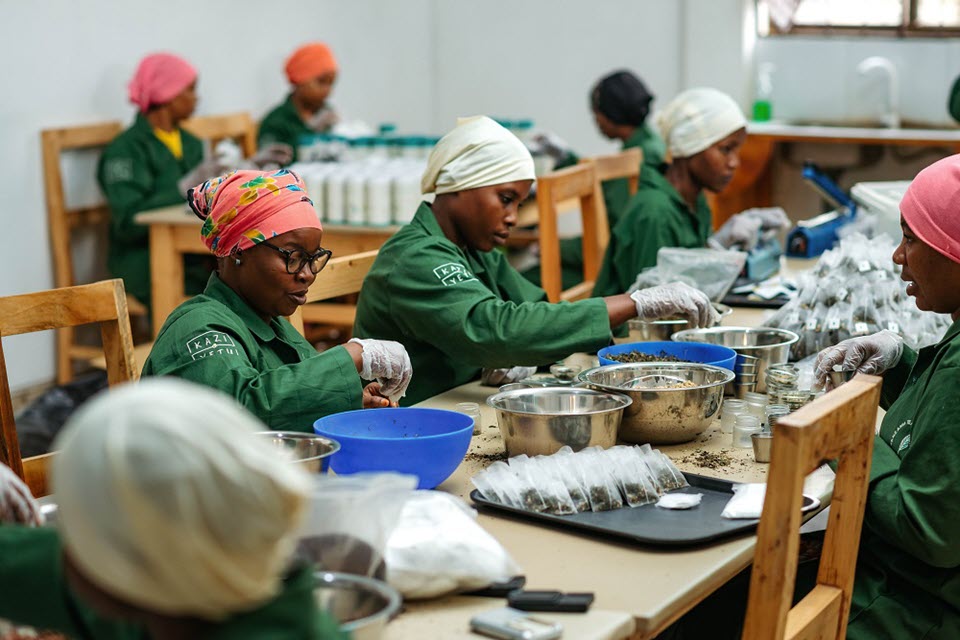
Sabita: The following example was a social enterprise based in Dar es Salaam, Kazi Yetu, which means “our work.” It’s a social enterprise.
I first visited their blending unit in Dar es Salaam. It’s a small blending unit with maybe 15 workers or so. The workers were measuring out the tea into tea bags, making the tea bags, and packaging it.
They are mostly young single mothers employed at a reasonable wage. They are given health insurance, which is incredibly valuable to anybody living in Sub-Saharan Africa. They have a pleasant, clean, calm, non-bullying work environment.
If she’s representative of the others, the worker I spoke to was very thankful for that working environment.
When I arrived, they had just been consulted about what kinds of chairs. Transform Trade, an NGO based in the UK, had offered to invest in improving the work environment to make it more comfortable, so they had gone out to buy some new chairs. Management had taken the workers to the chair shop to choose which chairs they would like. This attention to detail and the inclusion of the workers in the decision were really impressive.
Kazi Yetu produces lovely tea. It is very high-quality specialty tea, blended with herbs and spices, which they buy from smallholder farmers and then beautifully packaged. And then that is marketed for a high-end market.
That model seems also to be working quite well.
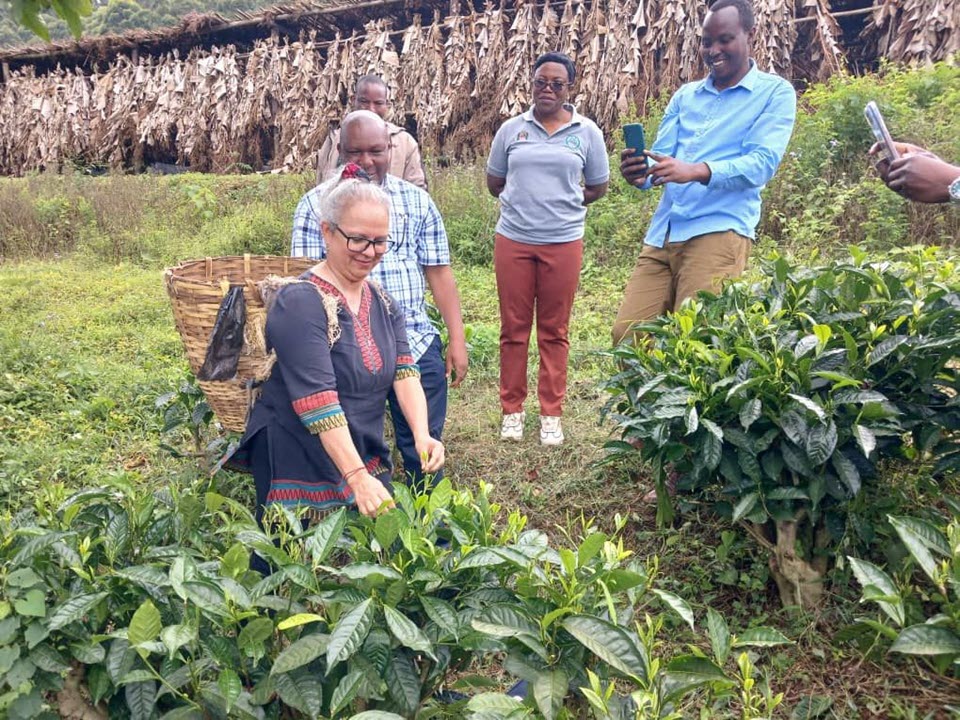
I was also privileged to go to north Tanzania, where they built a small factory. It was an investment made by CARE International and Bloomberg Philanthropies. They built a small factory in a village close to where the tea farmers lived to reduce the distance they would have to travel to deliver their tea, meaning the tea would be fresher. The farmers formed a cooperative that will own this factory so that more of the value chain is within their ownership and control. And when that’s done, they will get more of the return from the major tea.
This model seemed to be very much about the people as well as the quality of the tea and the commercial viability of the tea. So that was very heartening to see.
KTDA, Kenya
Dan: You also visited Kenya.
Sabita: The Kenya Tea Development Agency is very well established. It’s been around, you know, as long as Kenya’s independence. And it seems to be a model that works very well; I mean, no model is perfect. It’s got lots of challenges lots of issues. But fundamentally, it seems to be working well.
It’s a model of many smallholder farmers aggregating their tea. But it’s nationwide, and it’s very well organized.
Groups of smallholder farmers are organized into zones. The farmers will elect a leader. Zone leaders manage tea collection points. Then, the leaders of the collection points will elect somebody who is part of the directorship of the factories. You hear repeatedly in Kenya that the farmers own the factories.
The Kenya Development Agency, which used to be a government authority, was privatized and has become much more efficient. They also have a company which is a management Kenya Tea Development Agency management services. They’ve got a company that does packaging, and they’ve got Kenya Tea Development Agency Foundation, which looks more at sort of social issues and environmental issues.
All these elements are in place and highly well-functioning.
All these models have in common the autonomy of the smallholder farmer and the aggregation of bringing many smallholder farmers together to benefit from economies of scale.
One of the big concerns that people working on social issues have is that on a tea plantation, you have a great deal of control and oversight over the workforce. And you can have things like gender policies, occupational health and safety policies, etc.
The concern has always been that if the tea industry is going to fragment into tens of thousands of smallholder farmers, then you wouldn’t have that oversight.
But this aggregation also helps bring that oversight, except it becomes more support. So, the extension workers I met talked to the farmers about how to grow better quality tea and have a better crop and about environmental issues and social issues such as gender equity and household finances.
The Kenya Tea Development Agency Foundation had a very comprehensive Holistic Economics Training that also helped to improve dialogue between household members, which reduced gender-based violence.
I feel that this is the future of the tea industry. It’s, you know, it’s happening kind of organically. The plantation model is starting to feel the strain. You keep hearing about plantations closing or huge social unrest on tea plantations. In Kenya, there have been issues with people raiding tea plantations, stealing the tea, burning tea harvesters, etc.
The smallholder model presents different issues, but at least you know that there is autonomy and this ability to diversify, which is better for the farmers’ income and gives them more security because not all their eggs are in one basket. That biodiversity also means that it’s better from an environmental point of view.
Dan: In the book you mentioned, Out of Control, Kelly writes that common behaviors naturally align when many individuals work closely together with a shared purpose. Distributed systems are characterized by emergence, he explains. Each individual influences the behavior of the whole. Over time, a consensus emerges… “a process from quantitative change to qualitative change.”
Sabita: I think we’ve painted quite a rosy picture. We shouldn’t underestimate the challenges those farmers face.
I mentioned what happens once the tea leaves the factory. The tea is often sold through private negotiations, but a lot goes through auctions. And the fact is, once it leaves the factory, it becomes a commodity. Then, it becomes even more of a commodity because it gets blended with other teas from other countries. So, after it leaves the factory, it suddenly loses almost its value for the farmer while, at the same time, somehow adding enormous amounts of value to the blenders, packers, and retailers who will ultimately sell it. So, there’s something that needs to be addressed in how tea is marketed globally.
Almost all the models we’ve discussed have involved some injection of funds from a foundation or an NGO. And it’s almost like the industry can’t manage independently without something external being put in, almost as charity.
This is the most popular drink in the world, after water. Why should it be depending on injections from charities?
It should earn enough to support the people who produce this amazing product.
*The Wood Foundation works with 28,000 smallholder farmers in Tanzania. Their largest operation is the Tatepa tea factory (Watco), which serves 14,000 smallholders with support from the Njombe Outgrowers Services Company
Out of Control
Out of Control chronicles the dawn of a new era in which the machines and systems that drive our economy are so complex and autonomous as to be indistinguishable from living things. – Goodreads
Out of Control: The New Biology of Machines
Publisher: Basic Books | 531 Pages
January 1992
Free Download Link: MediaFire
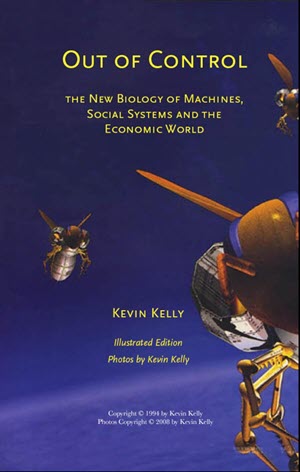
Editor’s Note: Tea Biz will continue this conversation on the importance of developing ways to capture and retain supply chain value in the tea lands.
Powered by RedCircle

